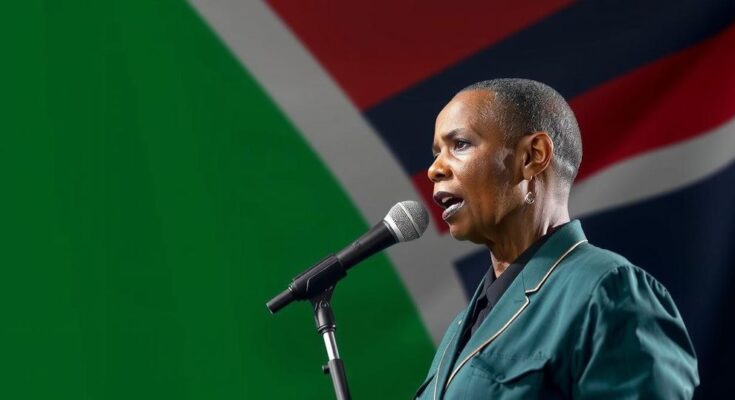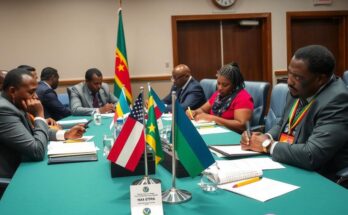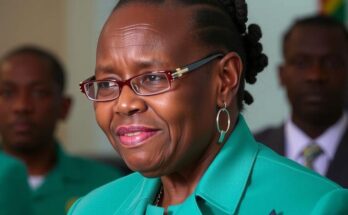Botswana’s President Mokgweetsi Masisi conceded defeat in the recent elections, resulting in a significant loss for the ruling Botswana Democratic Party (BDP), which has governed since 1966. The opposition coalition, Umbrella for Democratic Change (UDC), is poised to take power, led by Duma Boko. The election reflects rising public dissatisfaction, particularly among youth, due to socio-economic grievances and growing unemployment. Analysts caution that long-ruling parties must adapt to changing dynamics to maintain political dominance.
In a historic turn of events, President Mokgweetsi Masisi of Botswana acknowledged defeat after initial results indicated a decisive loss for his ruling Botswana Democratic Party (BDP) in the recent national elections. This election marks the end of a near sixty-year governance by the BDP since the nation’s independence from British colonial rule in 1966. As preliminary reports emerged, it became evident that the opposition coalition, Umbrella for Democratic Change (UDC), led by lawyer Duma Boko, had secured a commanding lead in the parliament, signaling a potential victory for the presidency for Boko. As of the latest updates from over half of the constituencies, it was disclosed that the UDC had emerged victorious in 26 of the available 61 parliamentary seats, while the ruling BDP could only muster a mere three seats. This electoral shift reflects widespread public dissatisfaction, particularly among the youth, stemming from pressing socio-economic issues, including heightened unemployment rates that have reached 28% and a significant decline in economic growth largely attributable to a downturn in the global diamond market, which has historically bolstered Botswana’s economy. Acknowledging the election results, President Masisi stated, “Although I wanted to stay on as your president, I respect the will of the people and I congratulate the president-elect. I will step aside and I will support the new administration.” Meanwhile, the capital city of Gaborone witnessed a calm morning on the day following the elections, with small groups of opposition supporters expressing their jubilation. One young citizen remarked on the changing political landscape, saying, “I did not ever think I would witness this change in my life. The BDP had stayed too long in power and I am proud to be part of the people that removed them for a better Botswana.” This electoral defeat of the BDP parallels similar outcomes in the region, as evidenced by the recent loss of parliamentary majority by South Africa’s African National Congress, which was in power for thirty years. Furthermore, attention turns to the impending elections in Namibia, where the ruling SWAPO party may also encounter significant challenges from opposition forces. As noted by political analyst Zaynab Hoosen, “The outcome of Botswana’s elections should serve as a warning to long-time ruling parties across southern Africa and beyond that without economic progress and employment opportunities, political dominance will falter.”
The recent election results in Botswana have significant implications, marking the end of nearly six decades of uninterrupted rule by the Botswana Democratic Party (BDP). This political upheaval reflects a broader trend across southern Africa, where long-standing parties are increasingly challenged by evolving public sentiments and socio-economic pressures. Botswana’s economy has relied heavily on its diamond industry, but recent downturns have led to increased unemployment and dissatisfaction among the populace, particularly the youth, who have been vocal in their desire for change. This election serves as a critical case study of voter sentiment and political dynamics in a region grappling with the legacy of long-term governance.
The extraordinary electoral shift in Botswana signifies a crucial juncture in the nation’s political landscape, as the ruling BDP concedes to the opposition UDC, ultimately reflecting broader discontent with prolonged governance amid socio-economic challenges. The outcome heralds a potential reformation in governance and serves as a cautionary tale for other long-ruling parties within southern Africa. As the region braces for similar elections, the need for political responsiveness to economic realities has never been more pressing.
Original Source: www.cnn.com




